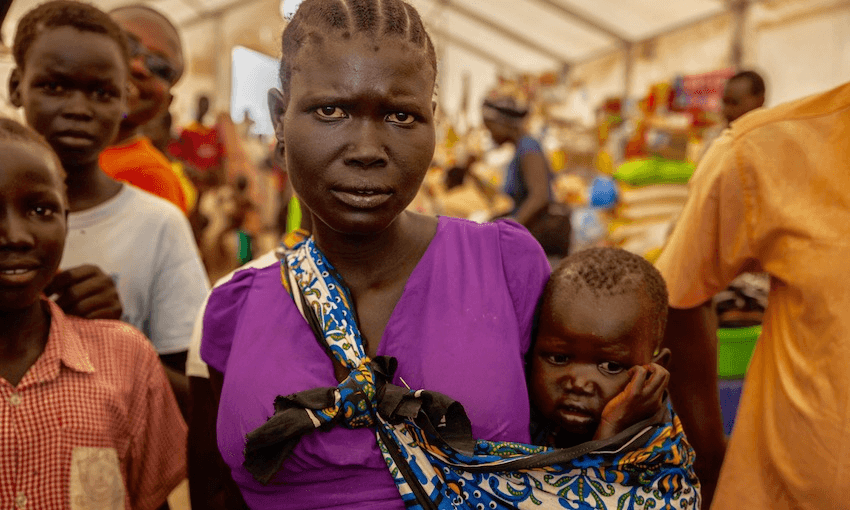Last month the government committed to increase New Zealand’s refugee quota to 1500. Now New Zealand must accept more refugees from Africa and the Middle East, writes South Sudanese-Kiwi and former refugee Clench Enoka.
I was born in a refugee camp in Kenya. I had no country to call home. My parents were born in South Sudan. Every day they experienced things that people wouldn’t normally: brutal civil wars, constant poverty, poor health care, no proper home. Basically they had no access to what the western world would consider the ‘basic necessities’ to live life.
With little opportunity for a future, my parents left South Sudan and travelled across the border into Kenya, where they lived in a refugee camp. My parents wanted us kids to have all of the things we couldn’t have in South Sudan. They didn’t want us to grow up in an environment full of destruction. They sacrificed everything just for us to grow up in a place that wasn’t falling apart.
In 2003 my family and I moved to New Zealand as refugees. Growing up in New Zealand was so challenging – mentally and physically. Everything was so different than what we were used to – we had to learn a whole new language, understand a completely different culture, and try to fit in.
Now the thing that I struggle most with is not forgetting my roots, not feeling ashamed of being a different race and remaining proud of where I came from. Even though I haven’t lived in South Sudan, my parents tell us wonderful stories of them growing up there before the war.
I’m also a very proud Kiwi. I’m proud to be part of a country so generous as to give my family the opportunity of a second life. During our first years in New Zealand, members from our church frequently came by our house to see that we were okay. We could always rely on them. Today, I’m 19 years old and studying design at Massey University. Whatever the future holds for me, it would’ve been unattainable, unimaginable for me, if it wasn’t for this wonderful country.
That’s why I was so shocked when I recently learned that in 2009, New Zealand stopped accepting refugees from Africa and the Middle East who don’t already have family members here. Before the policy change, on average around 20% of our refugee intake were African. Now, it’s an average of 4%. My family wouldn’t have been able to come here under this policy.
Africa and the Middle East are home to some of the most fragile and conflict-torn states in the world. And it is these two regions that the majority of the world’s refugees are from. In my home country of South Sudan a third of the population have been forced flee their homes. Half of them are children. Over two million South Sudanese refugees have sought safety in neighbouring countries. Yet since 2011, only 12 South Sudanese refugees have been accepted to New Zealand. Twelve! We’re surely not doing our bit.
This year, I took part in World Vision New Zealand’s 40 Hour Famine campaign, raising funds for South Sudanese refugees who had fled to Uganda. Together over 90,000 young Kiwis took a stand, saying that we can and should do more for the people of South Sudan. Now, we are asking the government to join us, to truly stand with the world’s most vulnerable people, by removing the family-link requirement for refugees from Africa and the Middle East.
I was born a refugee, in a camp in Kenya. Yet a refugee is not my identity – I stopped being one when I arrived in New Zealand. At that moment, I became a person with a future. Only if we remove the family-link requirement for Africa and the Middle East will more people like me find refuge from conflict and struggle, and instead build a home and contribute to this safe, beautiful land, Aotearoa. Let’s open our hearts. We certainly have room for more than 12 people from my homeland.





